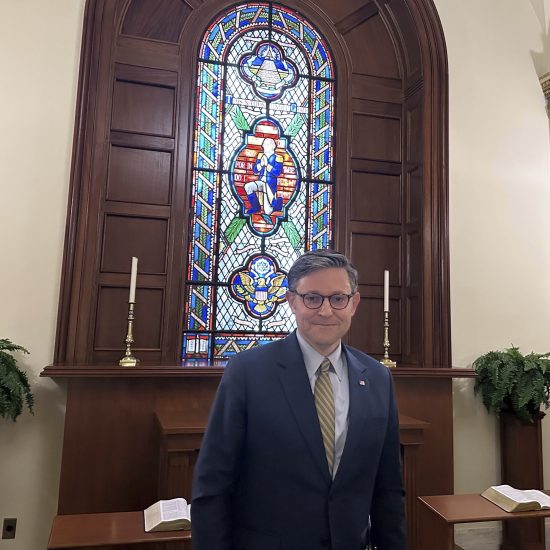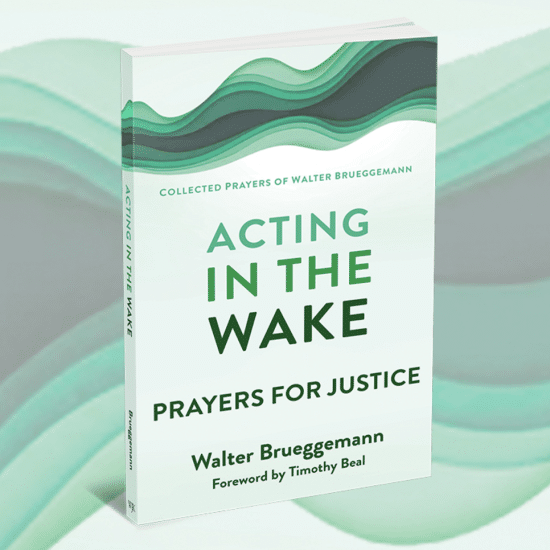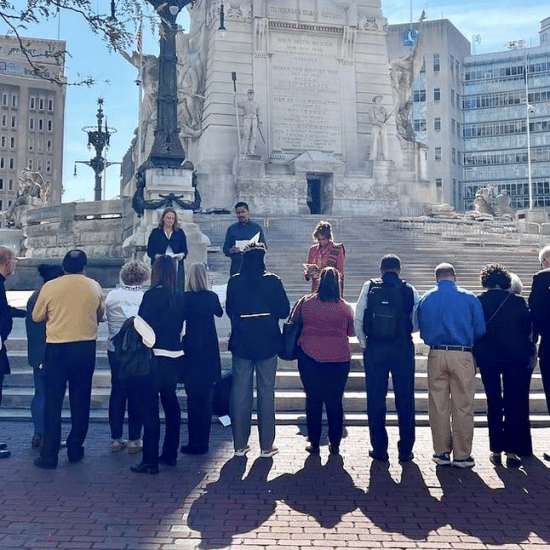Broadcast and print news outlets reported the dramatic story of a March 27 JetBlue flight from New York that made an emergency landing in Amarillo, Texas, after the pilot began acting and speaking erratically and had to be locked out of the cockpit and constrained by flight attendants and passengers.
A lot of commotion and confusion during that part of the flight left many passengers anxious and fearful. After a safe landing, the pilot was removed from the plane and placed into the custody of the FBI. He was to undergo medical tests to try to determine what prompted his unusual behavior.
One of the passengers interviewed shortly after the flight described the influence of a passenger next to her. The fellow passenger started praying as soon as the commotion started and didn’t stop until the plane was safely on the ground.
The interviewee explained that she felt like getting up and leaving as events were unfolding in the front of the aircraft, even though she knew there was no place to go. However, she couldn’t. The praying passenger had a firm grip on her arm and maintained it throughout her prayer.
The young woman acknowledged that the grip — but especially the prayer — helped calm her until order was restored and the plane had landed safely.
Later on the same day, I talked by phone with my mother, who was hospitalized for a medical condition for about a week before she was transferred within the same southern Illinois hospital for 10 days of physical and occupational therapy.
Mother has suffered from Parkinson’s for nearly 20 years, and the therapy was required to be sure she could return to the assisted living facility she calls home. Mom has worked hard to pass the scrutiny of the rehab staff with the goal of going back to live in a place where she can maintain an appropriate level of independence and be with friends she has made while a resident. Mom doesn’t want to go live in a facility where more personal care is necessary. Nor do her siblings, children and grandchildren.
Mom couldn’t wait to tell me about her experience during one of the meals yesterday. Therapy patients are encouraged to eat together in a common area while participating in the program. It is part of their therapy. On this occasion, Mother found herself eating with two or three men, one of whom she did not know.
The new guy was talkative and inquired about her name, health situation and her plans once released from the unit. Mom explained she lived at a place called Heritage Woods, mentioned how much she enjoyed living there and indicated she desperately wanted to be approved to return there.
At a point in the conversation, the new fellow asked if he could pray for the others. He positioned himself between Mom and another man, took their hands and began to pray for them by name, asking for strength and healing for each one and a smooth transition as each finished the therapy regimen and was released.
It was just what my mother needed. She had been anxious about her exit evaluation the next morning — it is happening as I write — praying that therapists and doctors would agree that she could handle going home to where she lives. This prayer time turned out to be an emotional but positive experience for her.
Intercessory prayer is potent. We know that prayer changes things. Most of us would agree that simply knowing someone is praying specifically for us has a way of putting stressful situations into a proper perspective, calming us and even helping us improve our attitudes and outlook.
The passenger on the JetBlue flight was grateful for a stranger who prayer for her and others 30,000 feet in the air, but that was no less providential than a stranger who took an interest in fellow patients and demonstrated his concern with heartfelt prayer in a little corner of a local hospital.






